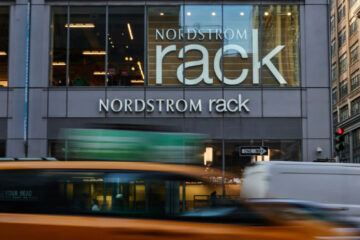As the global economy continues to take new shape in its recovery from the Covid-19 pandemic, many companies are still reeling from the high costs and supply shortages the health crisis triggered.
And a significant number of them are filing for bankruptcy.
Related: Another company files for bankruptcy and Dave Ramsey has words
Major bankruptcy filings in 2023 included the working space company WeWork in November, drug store retailer Rite Aid in October, and Bed, Bath & Beyond in April.
The trend has continued in 2024. In fact, telecom company Airspan Networks Holdings (MIMO) filed for a prepackaged Chapter 11 bankruptcy in Delaware on March 31.
A lot of the news around bankruptcies involves how companies are restructuring their debts or going out of business entirely. But if a company that files for bankruptcy has a stock that is publicly traded, the question of what happens to shareholders is worth examining.
In Airspan’s case, existing holders of stock have been given two options. One is to receive their pro rata share of $450,000. The other is to elect for warrants instead of cash. But if more than 150 shareholders decide to take the warrants, no warrants at all will be given.
A pro rata share is the cash value of a proportionate number of owned shares based on the determined total value.
A warrant is similar to an option, where the holder can purchase a security at a specific price and quantity at a future time. But unlike options, warrants are issued by a company rather than a central exchange.
What bankruptcy means for the people affected
The thought of bankruptcy is scary for companies, their employees and shareholders.
The companies themselves would enter a reality where they are forced to ponder their very survival.
Employees, naturally, wonder about the security of their jobs.
The impact on shareholders of a company filing for bankruptcy has a few layers of complexity.
In Chapter 7 bankruptcy, a company is simply going out of business. It sells its assets to pay off debts. Shareholders are left to split what’s left, if there is anything remaining at all. If there is not, shareholders can get nothing.
When a company is considering filing for Chapter 11 bankruptcy, it is likely looking to restructure and stage a comeback. If shareholders are brave enough to hold onto their shares during this process, which is risky, they at least stand the chance of making some money back.
For example, car rental company Hertz (HTZ) filed for Chapter 11 in May 2020 as the Covid-19 pandemic wounded the travel business generally. While the stock has struggled recently, the company did come out of bankruptcy in July 2021.
Employees are pictured pondering the bankruptcy of their company, peering out the window of a building.
Shutterstock
In bankruptcy events, shareholders are last in line
When a company goes bankrupt, hanging on to its shares is dicey business. Shareholders could wind up with little or nothing, but they may be rewarded for their patience.
In the short term, the stock is probably already down at the filing and is destined to stay that way for a while. But in the long term, there may be hope for a revival.
Shareholders are the last ones to be considered for payouts. First to get any money from liquidated assets or cash advancements are secured creditors such as banks holding mortgage or equipment loans, for example. Unsecured creditors, including banks, suppliers and bondholders are next. Then come the shareholders.
“The stock could very well become completely worthless,” writes The Balance. “But there’s always a chance that the company could emerge from bankruptcy stronger and stock prices may rise. In the short-term, however, the stock price is likely to stay very low during bankruptcy and immediately after.”


